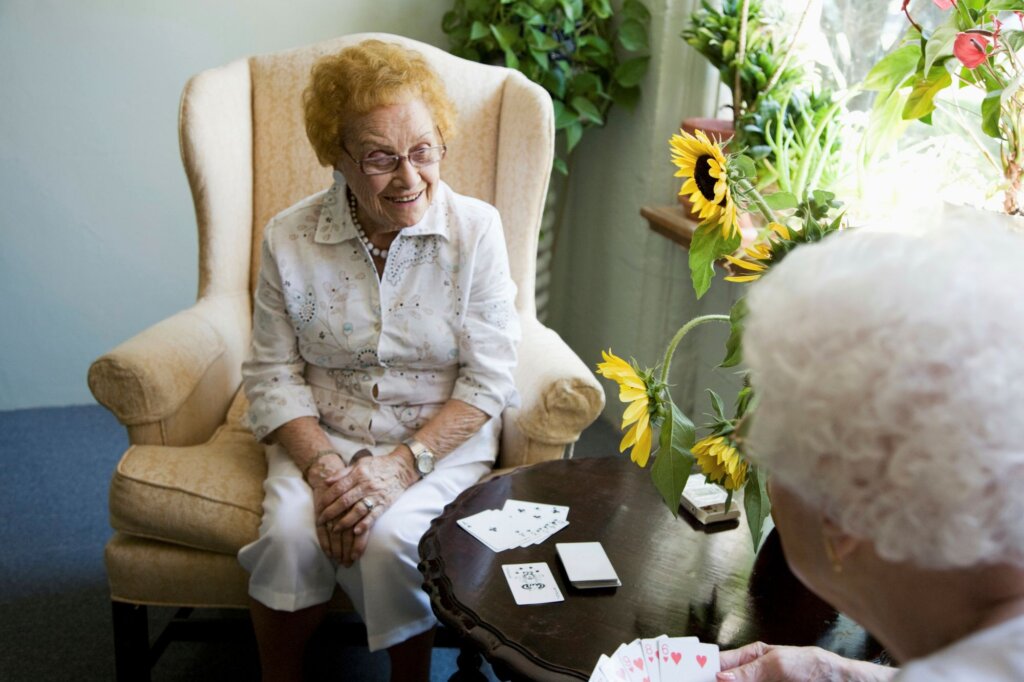When a loved one is diagnosed with Alzheimer’s or another form of dementia, it can be an emotional and overwhelming time for families. As cognitive changes progress, daily care needs often become more complex, making specialized memory care a valuable option. But what exactly is memory care, and how does it differ from other senior living options? Understanding what to expect can help families make informed decisions and ensure their loved one receives the support they need in a safe, compassionate environment.
1. What Is Memory Care?
Memory care is a specialized form of senior living designed for individuals with Alzheimer’s, dementia, or other memory-related conditions. Unlike traditional assisted living, memory care communities provide more structured routines, enhanced safety measures, and staff trained to support cognitive decline.
Some key features of memory care include:
- Secure environments to prevent wandering
- 24/7 supervision and assistance with daily tasks
- Coordinated activities to help with cognitive function and memory
- Staff trained in dementia care and communication techniques
- Personalized care plans for each resident
Memory care is designed to both meet physical needs and also provide comfort, dignity, and engagement for those living with memory loss.

2. How Is Memory Care Different from Assisted Living?
Many families wonder whether assisted living or memory care is the right choice for their loved one. While both provide support with daily living activities, memory care offers additional services tailored specifically for those experiencing cognitive decline.
Key differences include:
- Security: Memory care communities have additional safety features like secured entrances and exit monitoring to prevent wandering.
- Specialized Staff Training: Caregivers receive training on dementia-related behaviors, including communication techniques, redirection strategies, and crisis prevention.
- Structured Daily Routine: A predictable schedule helps reduce confusion and anxiety for residents.
- Sensory and Cognitive Activities: Programs like music therapy, reminiscence activities, and brain-stimulating exercises promote engagement and well-being.
If a loved one has difficulty remembering to take medications, gets lost in familiar places, or struggles with daily tasks due to cognitive decline, memory care may provide the structured support they need.
3. Signs It May Be Time for Memory Care
Deciding when to transition a loved one to memory care is never easy, but certain signs indicate that additional support may be necessary. You may want to consider memory care if your loved one:
- Frequently forgets to take medications or eats irregularly
- Wanders or gets lost, even in familiar places
- Shows increased confusion, agitation, or aggression
- Has difficulty managing daily hygiene and household tasks
- Experiences frequent falls or safety concerns at home
- Withdraws from social activities or shows signs of depression
If family caregivers feel overwhelmed, memory care can also provide relief while making sure a loved one receives the professional care they need.
4. What to Look for in a Memory Care Community
Choosing the right memory care community requires thoughtful consideration. Visiting different facilities and asking the right questions can help families find the best fit for their loved one.
When touring a memory care community, consider:
- Staff-to-resident ratio: Are there enough caregivers to provide adequate attention?
- Engagement programs: What types of activities are available to stimulate memory and social interaction?
- Dining and nutrition: Are meals designed to meet the dietary needs of residents?
- Family involvement: Does the facility encourage family visits and participation in care planning?
- Overall atmosphere: Does the community feel welcoming, calm, and supportive?
Taking the time to find a community that prioritizes safety, dignity, and engagement can make all the difference in a loved one’s quality of life.
5. Supporting a Loved One’s Transition to Memory Care
Moving to memory care can be a difficult adjustment. Preparing for the transition can help make the process smoother and less stressful. Help your loved one during this time by:
- Bringing familiar belongings, such as favorite blankets, family photos, or cherished keepsakes, to create a sense of home.
- Visiting regularly to provide reassurance and emotional support.
- Working with staff to create a personalized care plan that aligns with your loved one’s preferences and routines.
- Being patient—adjusting to a new environment takes time, and it’s normal for emotions to fluctuate during the transition.
Navigating decisions around assisted living and memory care can be challenging, but understanding what to expect can help families feel more confident in their choices. Memory care communities provide specialized support, structured routines, and a safe environment designed to improve the quality of life for individuals with dementia. By knowing when it may be time for memory care and taking the time to find the right fit, families can make sure their loved one receives compassionate care in a setting that prioritizes their well-being.